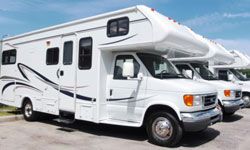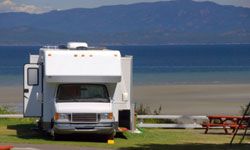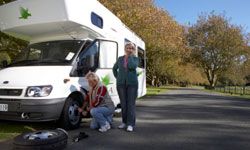The RV lifestyle: It's a metaphor for retirement. Every day, you can wake up in a new place, and every day, you can make a new plan.
The idea is very appealing if you've spent decades in the same old work and home routine. But the word "lifestyle" is no exaggeration. Even if you're taking out an RV for just a week or two, there's a whole routine, body of knowledge and life view that you need to learn to make the trip work. An RV is not simply a hotel room on wheels.
Advertisement
The good news is that, in general, people who are living the RV lifestyle are eager to share what they've learned. From trip planning to repairs, there's a host of books, DVDs, Web sites and bona fide human networks to go to for advice.
And that advice starts with the first and biggest choice: How much RV do you really need?





